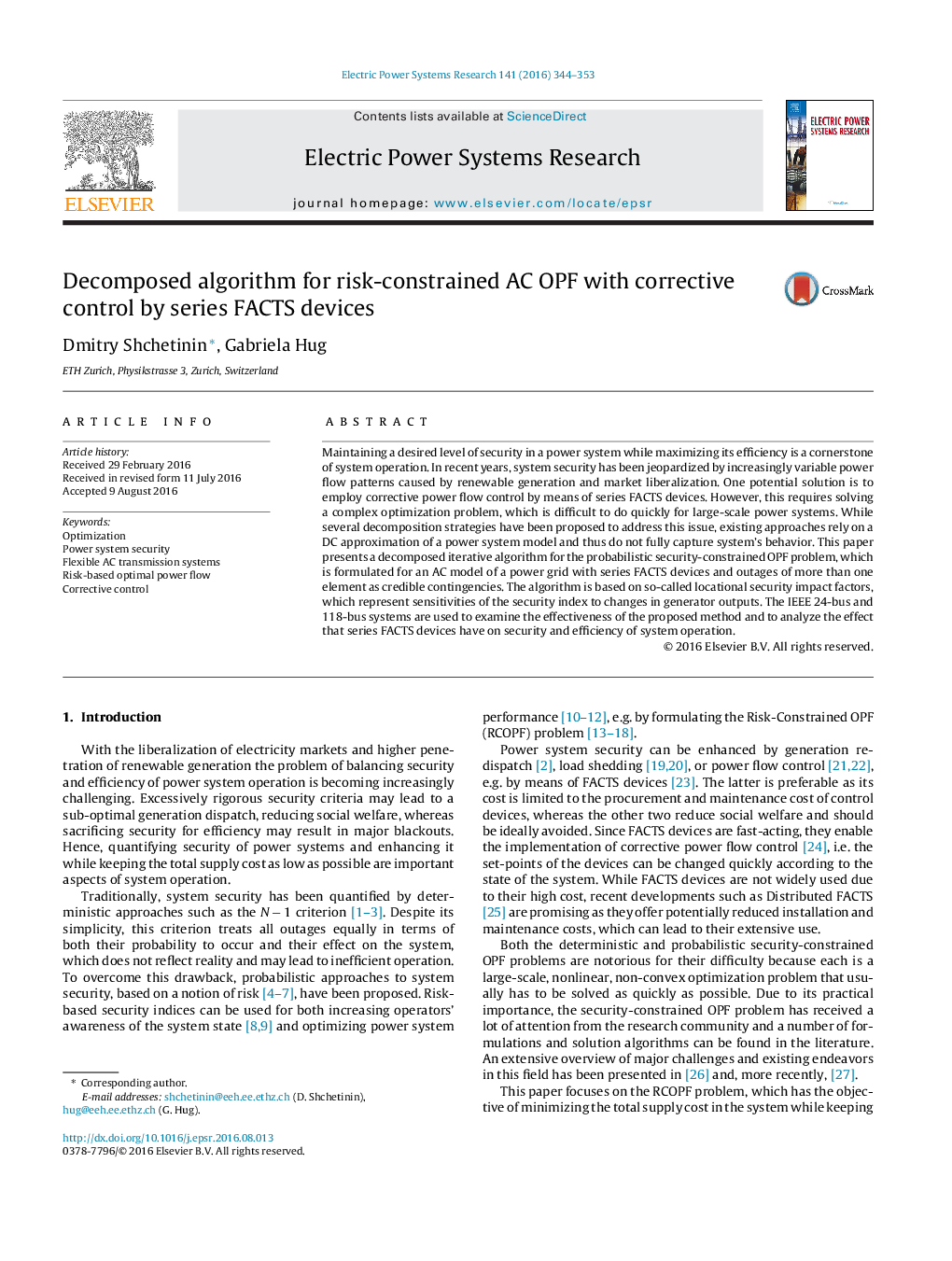| Article ID | Journal | Published Year | Pages | File Type |
|---|---|---|---|---|
| 7112492 | Electric Power Systems Research | 2016 | 10 Pages |
Abstract
Maintaining a desired level of security in a power system while maximizing its efficiency is a cornerstone of system operation. In recent years, system security has been jeopardized by increasingly variable power flow patterns caused by renewable generation and market liberalization. One potential solution is to employ corrective power flow control by means of series FACTS devices. However, this requires solving a complex optimization problem, which is difficult to do quickly for large-scale power systems. While several decomposition strategies have been proposed to address this issue, existing approaches rely on a DC approximation of a power system model and thus do not fully capture system's behavior. This paper presents a decomposed iterative algorithm for the probabilistic security-constrained OPF problem, which is formulated for an AC model of a power grid with series FACTS devices and outages of more than one element as credible contingencies. The algorithm is based on so-called locational security impact factors, which represent sensitivities of the security index to changes in generator outputs. The IEEE 24-bus and 118-bus systems are used to examine the effectiveness of the proposed method and to analyze the effect that series FACTS devices have on security and efficiency of system operation.
Related Topics
Physical Sciences and Engineering
Energy
Energy Engineering and Power Technology
Authors
Dmitry Shchetinin, Gabriela Hug,
